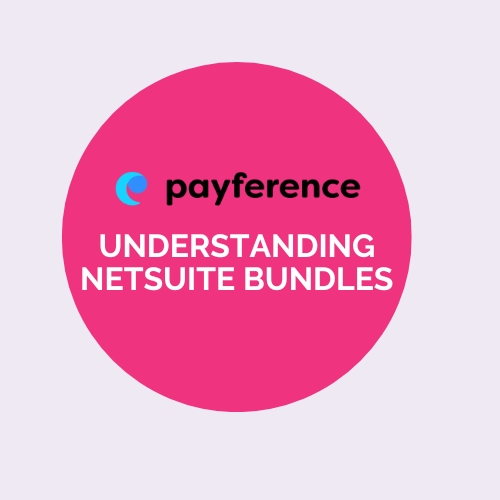NetSuite AR Automation: Improve Collections & Increase Efficiency
Efficient collections management is vital for businesses to maintain healthy cash flow and...
By: Payference on Nov 30, 2023 5:13:57 PM

Efficiency and adaptability are paramount. NetSuite, a leading cloud-based Enterprise Resource Planning (ERP) system, provides businesses with a robust platform to manage their key processes seamlessly. One of the standout features within NetSuite that amplifies its capabilities is the concept of "bundles." This article delves into the world of NetSuite bundles, exploring what they are, their key components, why they are essential, and how they contribute to optimizing business processes.
At its core, a NetSuite bundle is a comprehensive collection of customizations, configurations, and SuiteApps that can be effortlessly installed and managed as a single unit within the NetSuite ERP system. Imagine it as a packaged solution containing a set of features, scripts, workflows, or customizations meticulously designed to address specific business needs.
Bundles often include SuiteApps, which are pre-built applications or plugins developed by NetSuite or third-party vendors. These apps enhance and extend the core functionality of NetSuite to cater to diverse industry requirements.
Custom scripts and workflows tailored to automate specific processes can be bundled. This enables businesses to implement unique functionalities or streamline existing workflows, boosting operational efficiency.
Bundles can incorporate custom forms and fields tailored to capture and display data in a way that aligns with a company's specific requirements. This is particularly beneficial for industries with unique data management needs.
Business intelligence is a crucial aspect of ERP systems. Bundles often package specialized reports and dashboards, offering insights and analytics tailored to the industry or business function, aiding informed decision-making.
Bundles provide a convenient way to maintain consistency across customization elements. This ensures that all required configurations, scripts, and apps are deployed together, reducing the risk of errors and ensuring a streamlined user experience.
Bundles facilitate the rapid deployment of tailored solutions. Instead of manually configuring each element separately, businesses can leverage pre-packaged bundles to quickly implement functionalities and adapt to changing business requirements.
Industries often have unique processes and requirements. Bundles allow for the creation of industry-specific solutions, ensuring that businesses can leverage ERP systems that are finely tuned to their needs.
By bundling custom scripts, SuiteApps, and workflows, businesses can introduce new features and functionalities that go beyond the out-of-the-box capabilities of NetSuite. This enables them to stay ahead of industry trends and remain competitive.
As businesses grow, their ERP needs evolve. Bundles provide a scalable solution, allowing companies to add new functionalities without undergoing extensive custom development efforts.
NetSuite bundles offer a strategic approach to tailoring the ERP system to the unique needs of an organization. By combining pre-built SuiteApps, custom scripts, and other elements into a unified package, businesses can not only streamline their operations but also adapt quickly to changing market demands. Whether enhancing reporting capabilities, automating workflows, or adding industry-specific features, NetSuite bundles are a valuable tool for organizations seeking a flexible and powerful ERP solution.
And if you're looking for a tool to help automate collections and get real-time accurate cash forecasts, be sure to check out Payference.
Efficient collections management is vital for businesses to maintain healthy cash flow and...
Cash flow management is a critical aspect of financial success for any business. Understanding and...
The SOAP API is a web service protocol that enables developers to interact with NetSuite...